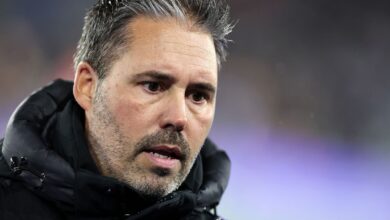Steve Cooper Commits to Leicester City Amidst Transfer Loophole Exploitation by Clubs
Cooper Suggests Kiernan Dewsbury-Hall Sale Won't Be the Norm at Leicester, Despite Financial Pressures Highlighted by Chelsea's Enzo Maresca

Leicester City manager Steve Cooper has emphasized that the primary goal of the club’s academy is to develop players for the first team, rather than generating profit.
Cooper’s comments come amid growing discussions about how young players are treated under current financial regulations.
The summer transfer window has seen numerous academy talents move between clubs, with many transfers driven by the need to comply with Profit and Sustainability Rules (PSR).
Recently, former Leicester City boss Enzo Maresca criticized the current system, suggesting that clubs are “compelled” to sell homegrown players to meet financial regulations, and called for changes to better protect these young talents.
This summer, Leicester City sold Kiernan Dewsbury-Hall, their most promising academy graduate, to Chelsea for £30 million as part of their efforts to adhere to PSR.
Despite this, Cooper has made it clear that he does not want such sales to become a regular occurrence during his tenure.
Cooper, who has a background in youth football, having worked with England’s Under-17 team, is dedicated to providing opportunities for young players. Several of Leicester’s top prospects have trained with the first team during pre-season, though their game time has been limited.
Will Alves, for instance, has seen some involvement in recent friendlies, while Sammy Braybrooke was the only academy player to join the first team on their recent trip to Germany, though he did not feature in any of the pre-season matches.
Cooper stated, “What’s the main objective of an academy? It’s to produce players for the first team or, maybe at some other places, it’s to sell on and make money.
Everyone knows my background and my commitment to that. I’ve also learned over the past five years that you need to win games as well. It’s about finding the right balance between these objectives.”
He added, “As a first-team manager, my job is to give hope to the academy. The way to give hope is by providing opportunities—whether that’s through training with the first team, participating in pre-season games, or playing in league and cup matches.
This approach helps in providing good reference points for the young players. Ultimately, nothing pleases supporters and managers more than seeing a young player break into the first team and succeed.”
Chelsea have faced backlash from their supporters for offloading homegrown players, with Conor Gallagher expected to be the latest to leave.
However, Maresca has argued that this issue is not unique to Chelsea. He pointed out, “This is not Chelsea’s problem; it’s a systemic issue with the rules.
All Premier League clubs are forced to sell academy players due to these regulations. It’s a challenge for every club in the league.”
He continued, “In Italy, we admire players like Francesco Totti, who spent his entire career at one club. Fans appreciate that loyalty. However, the current rules have shifted away from this ideal.
Big clubs are spending significant amounts on new players, and while some clubs spend more than others, the trend is widespread. If we want to better protect academy players, there may be a need to change these regulations.”
In summary, Leicester City’s focus remains on nurturing homegrown talent, even amid financial pressures that encourage the sale of young players.
Cooper’s commitment to integrating academy prospects into the first team highlights his dedication to this goal, contrasting with broader industry trends influenced by financial constraints.



